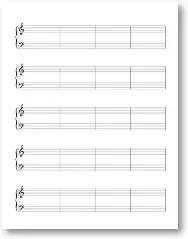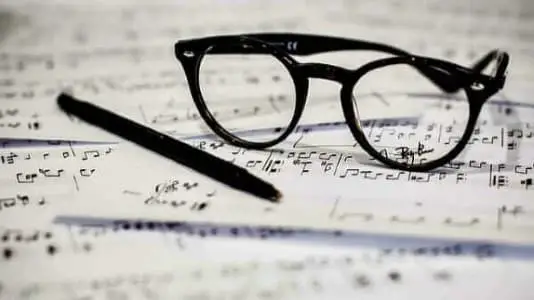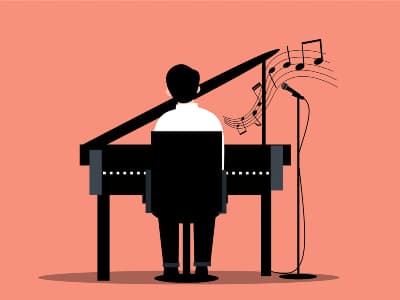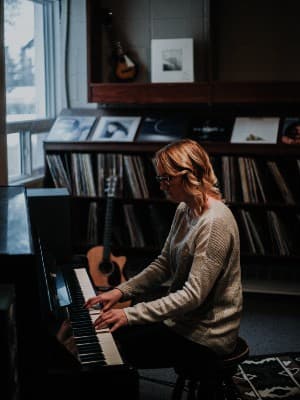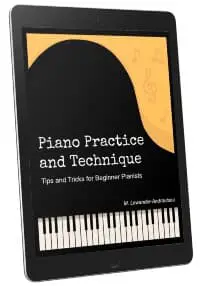- Home
- How to Write Music
How to Write Music
This article may contain compensated links. Please read the disclosure for more info.
Would you like to learn how to write music?
Discover the powerful feeling of writing your own music with free, easy music composition lessons for beginners!
Writing or Composing
If it's your own music, writing music is also composing music.
Some believe that composing music is only for professional composers, and would never attempt to write a song themselves. What a sad limitation, that music composition is somehow only for a selected few...
Who dares to pretend to be a composer before having learned everything about music theory, harmony, analysis, composition techniques, counterpoint, instrumentation, arranging....?
Well, I dare to say that anyone with some knowledge of music can start learning how to write music! I also dare to say that music belongs to everyone. Use it. Enjoy it. Love it. Create it. And WRITE it!
Actually, composing music does not mean that you have to know how to read or write music notation. But it helps.
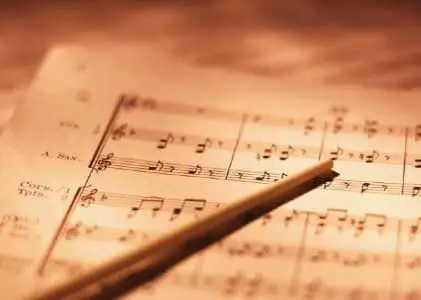
Learning How to Write Music
For professionals, composing music is a lot like writing poetry. You have to plan and outline the structure, the meter, the rhythm, the techniques to use, and the type of composition you want to do.
Learning how to write music is not so much a talent, as it is an acquired and developed skill. But even as a beginner, you can start composing with only a few easy techniques.
Supplies
So, except for great imagination and basic knowledge of musical notation- what do you need to start composing?
- A notation and composition software makes writing music fun and looks more professional.
- Otherwise, music manuscript paper, a sharp pencil, and an eraser also works fine.
- For listening to compositions with several parts, I use a digital piano in my studio to record each part on separate tracks. This works great when there are several different parts or instruments in the composition.
- Some way of recording different tracks is very useful. Audacity is software you can get for free. There is a learning curve, as with all software, but it's still relatively easy to use.
But you could also go low-tech and invite friends who play or sing to test-drive your new piece!
Tip: Make sure to print out some of my free printable staff paper before you begin!
Sharpen your pencil, and practice to write the notes, clefs etc. as you learn about them. This will make everything you learn here easier to remember.
Components of a Musical Composition
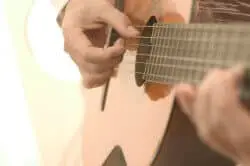
The main components or elements of a musical composition are the:
- Melody: A melody is how the notes or pitch moves up or down, higher or lower. A melodic phrase can move smoothly, be jumpy, or anything in between. Some musical pieces have only a melody. (Or only rhythm, like a rap.)
- Rhythm: Any melody would be boring if the notes were all the same length. So by making them longer or shorter, we create rhythm. And by grouping note values, we make rhythmical patterns that can be repeated- which is nice!
- Harmony: You can combine two or more melodies in different ways. This creates various forms of harmony. A melody can also be backed up by different chords, which belong to this group as well.
But, since a melody is dependent on rhythm to be interesting, it's included, so to say. So, actually, only two of the elements above are the most basic of a piece. Melody (with rhythm) and Harmony or Chords.
This means that if you just compose a melody and find chords that fit, that's all you need to arrange your composition in any possible way!
Let's Get Started Writing Music!
The first 3 lessons in how to write music for beginners below, will through exercises teach you:
- First, how to write a melody.
- Next, you will learn how to find the right chords to fit with the melody.
- Finally, you'll learn how to arrange your little tune for different instruments in simple 4-part harmony.
Sounds good? So without further ado, let's get started! Click on any of the links to go to the lesson:
Here are more beginner music composition lessons:
And, just for fun and perhaps some inspiration:
I hope these lessons will help to get you started to write your own music!
Happy composing!
